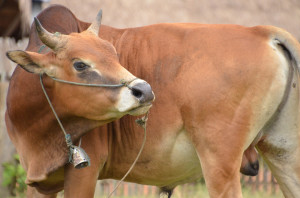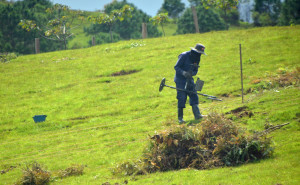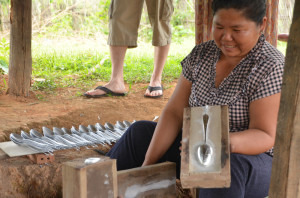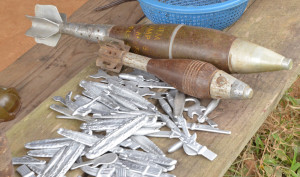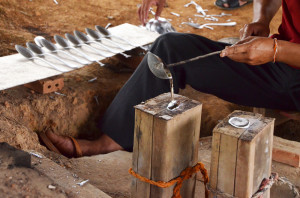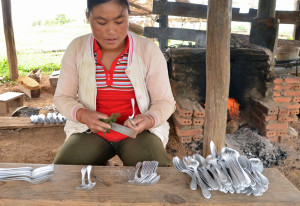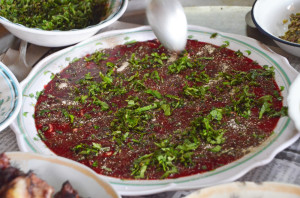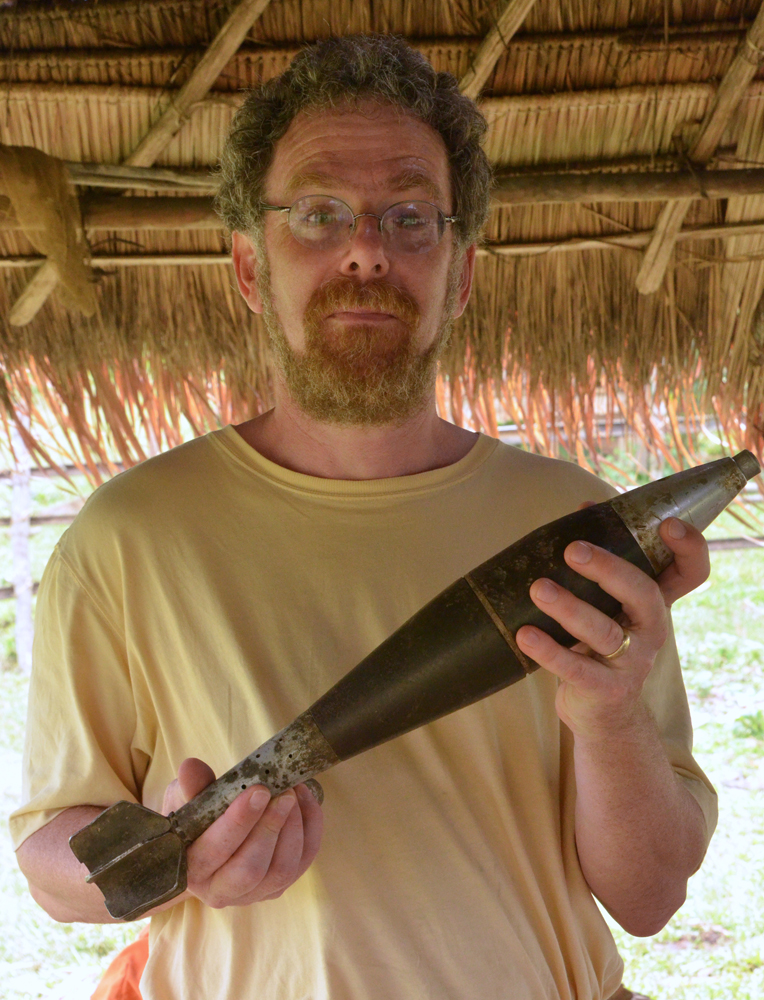Swords into Plowshares, Bombs into Spoons: A Visit to the Recyclers of Napia, Laos
Weʼre sharing dinner with our hosts in Napia, a small village on the savannah-like “Plain of Jars” in NE Laos, and turn our heads at the sudden rumble of thunder. A monsoon storm – common in the late afternoon – would mean a hasty retreat on these rutted dirt roads. Our host laughs. “No rain today,” he says through our translator. “Those are the bombies.” Each day, as the sun sets, the daily “take” – that is, the unexploded ordnance (UXO) found by detonation-teams (with metal detectors) and local farmers – are safely detonated. “The fields are on the hill over there,” says our host, waving his hand toward the setting sun. “The clearance team comes in every year. Youʼd think you get them all, and then every year more just come out of the soil, right in the field.” He shrugs. “Itʼs a way of life here.”
Napia and its 50 families, by virtue of living in an intensely bombed area from 1964-73, have created a unique relationship with shrapnel, bombies and the tons of wartime scrap and ordnance that litter the region: they survive on it.
Thanks to the increasing value of metals, locals in Napia have developed a recycling industry to give the villagers a source of support above the baseline of subsistence farming, all the while ridding their soils of dangerous UXOʼs. Napia invested in several small foundries, each operated by a local family, which can melt scrap aluminum. The molten metal is poured into molds to create raw cast spoons, bangles, bottle openers, and other small implements. The molds are made by compacting wet fireplace ash into wooden frames and imbedding a spoon, or other item, into the mold to create a template. A few other Napia families formed a weaving cooperative and together, the metal and local weaving businesses have built a community center, with a welcome sign in English, to attract visitors and a rare but needed commodity: cash.
The regional capital, Phonsavan, which has an airport and is the take-off point for tourists wanting to visit the pre-historic jar sites that haunt the plains, is only an hour from Napia, assuming the road is passable. Khen, our local guide and translator, knew of our long-standing relationship with MAG, and had recommended that we visit this village to get another vantage point on the warʼs impact and the resiliency of a proud people. The fact that his buddy operates one of the backyard smelters just happened to be a coincidence, weʼre sure!
Thus we not only got a guide and translator, but we were then encouraged to spend the long afternoon in the shade of our hostsʼ, and Khenʼs friendʼs, home learning about the local collecting, recycling and distribution processes. Soon, stories about our lives are being shared, and then weʼre all chipping in for a few bottles of Beer Lao (an excellent lager available everywhere in Laos). A bottle of homemade lao-lao (rice- whiskey) appears, and the cordial traditions are carried out. [At this point, one woman took charge of the smelting process and continued, most business-like, to make new spoons for the next two hours.]
A few other locals join the gathering and the chatter goes up a touch in volume. Zall is madly snapping photos of faces, and everyone laughs and wants to see their image on the cameraʼs back panel. The molten aluminum is smoking, the pillowy clouds ease across the sky, the verdant extended rice fields shimmer in the humidity, and we are lulled into the world of Lao hospitality with the warm rich smells of earth and water-buffalo and woodsmoke.
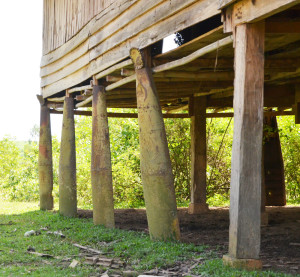
Bomb casings repurposed as house supports – the wood supports need to be first placed on stone so the termites donʼt eat into them.
“You stay for a meal?” our host inquires. Our relaxed translator is all smiles. “Weʼd be honored.” Soon a live duck is brought to us, and our approval apparently indicates that this is indeed dinner. No one rejects our offer to pay the market rate for the duck, or for a second case of Beer Lao. For hors dʼoeuvres, the host pours the raw, drained duck blood onto a plate, sprinkles on rice flour for thickening, and adds what smells like basil. A hush falls across the dozen or more locals and our host speaks a few words to honor his guests, and then, aluminum spoon in hand, he gives to us the first big taste. Politeness is a powerful motivator, and we nod graciously to our host with our bright-red glossy- lipped smiles. The crowd laughs, snacks are shared, someone offers another toast, and the sun edges toward the hazy hills.
Dinner is delicious – duck (machetted into little pieces, as seems to be the practice) with ginger and chilis, duck soup, plates of aubergines, fresh bananas and other fruit, and, of course, mountains of sticky rice. What a celebration; what a pleasure. Every day we learn from others.
The thunder – the “bombies” – wakes us up from the fuzz of a spirited late afternoon; the reality of where and who we are is suddenly redrawn in the slant of the old sunlight. We offer thank yous and bows and smiles and hand-shakes, and pay for a bucket-load of spoons and bangles (which we will have available as a fundraiser for UXO eradication).
We offer our deepest “Thank You” to essential programs such as Mines Advisory Group (an NGO) and UXO- Laos (Lao govʼt), which provide the skilled expertise of UXO location and clearance so that generations of civilians may live more safely on their own land.

